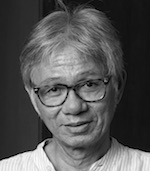
Rodrigo Duterte must have by now realized that, in spite of his high popularity and the vast forces under his command as president, he cannot impose his will on the nation as easily as he did on the provincial city he ruled as mayor for over two decades.
Not known to retreat in battle, Mr. Duterte has done just that; he has called off the twin campaigns on which he launched his presidency seven months ago – a war on drugs and peace talks with communist rebels – because he ran into problems with the police and the military.
Until then he had pursued his war on drugs ruthlessly; it left more than 7,000 drug dealers and users dead. It also raised suspicions of summary executions; a Social Weather Stations survey in December showed 78 percent of those polled expressing fears they themselves, or someone they knew, might fall victim to "extrajudicial killing."
These fears were heightened by reports that some policemen were exploiting the situation for personal profit, for instance, reselling confiscated drugs, blackmailing suspects, and using them as runners. Mr. Duterte had ignored these reports until one egregious case turned up, discredited all the defiant rhetoric he had been throwing at his detractors, and caused him a big international embarrassment.
A South Korean businessman, Jee Ick Joo, was picked up on a purported drug charge, taken to the national police headquarters, and there, on the same day, October 18, strangled. Afterward his body was taken to a funeral parlor for cremation, and word sent to his wife demanding ransom.
The case became publicly known only two months later, in December, from reports by the National Bureau of Investigation, whose agents began looking into it at the request of Mrs. Jee, who had gone to the bureau after failing to get answers from the police. It provoked a senate inquiry and diplomatic representations from South Korea, and prompted Duterte to suspend his war on drugs and give way to what the police chief, General Ronald de la Rosa, called his department’s on “war on scalawags.”
Ceasefire and the military

The outrage had scarcely begun to subside when another controversy rocked Mr. Duterte’s government: The ceasefire occasioned by the peace talks he had initiated with the communists broke down when he went back on his promise to release all political prisoners. He said the military was against the concession, arguing that it would seriously weaken the government's position in the talks. If he did not go along, Mr. Duterte said, “the military might not like it . . . [and] oust me.” He had actually freed some of the prisoners, and now, with the ceasefire ended, he ordered their re-arrest.
The situation recalls a comparable initiative taken by Corazon Aquino upon her accession to the presidency in 1986, after Ferdinand Marcos, dictator for 14 years, was deposed. She freed Marcos’s communist captives, including their party's founder, Jose Ma. Sison, who, taking no chances, fled the country and found asylum in the Dutch city of Utrecht, also the site of the just ended talks. Aquino's gambit ignited a series of military coups; the last one, in December 1989, nearly toppled her government.
Taking the opposite tack and siding with the military, Mr. Duterte, on the other hand, earned quick notice from the leadership of the communist ground forces that the cease-fire was off, a decision just as quickly sanctioned by Sison and the other communist elders in Utrecht. Clashes have since broken out intermittently, with the army acknowledging some casualties on its side.
No telling how the breakdown in the peace effort will affect Mr. Duterte's political partnership with other leftist leaders, some of whom sit in his Cabinet, but a strain is bound to develop, if not between them and Mr. Duterte, between them and their comrades.
Fallback war
Meanwhile, Mr. Duterte has begun a fallback war – a war on illegal gambling, of which a numbers game called "jueteng" is the most common. It is popular with the poor because it's an affordable habit and it suits their fatalistic bent. It accepts as low a bet as five pesos, the equivalent of an American dime, yet promises winnings of up to a thousand times that or more.
Jueteng also happens to be a convenient whipping boy for Philippine leaders who are lost for wars to wage, or have just lost one. It’s a good show: they look like they're having a go at it out of some moral conviction, but they are not really expected to win. Mr. Duterte could have left the initiative to the police but decided to issue an Executive Order for his new war, perhaps to give it an air of official seriousness, and promised victory in six months, the same amount of time he had given himself in defeating drugs – and fell gravely short of.
As an autocratic mayor, Mr. Duterte may have succeeded in eradicating jueteng, and much else, in his native Davao City, but on a national scale the odds are simply too great: Jueteng has flourished for centuries because it is driven by market forces and protected by political patrons and government and police officials.
The irony is the Spanish colonizers introduced it to amuse the natives and divert them from subversive thoughts.– Rappler.com